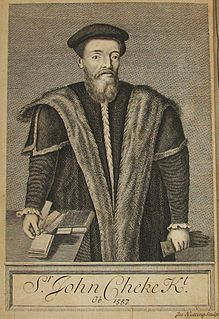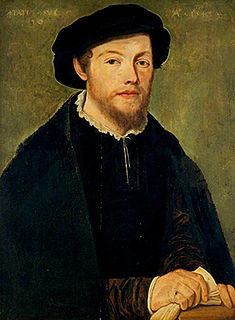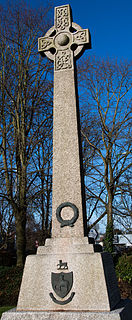Further reading
- Bloxam, John Rouse (1857). A Register of the Presidents, Fellows, Demies, Instructors in Grammar and in Music, Chaplains, Clerks, Choristers and other members of Saint Mary Magdalen College. Vol. II. Oxford: J. H. Parker, H. Hammans. p. xlvi., lii, lvii, 7–38; Volume III pp 105–6; Volume IV p 135n.;
- Carwithen, John Bayley Somers (1829). The History of the Church of England. Vol. I. London: Baldwin and Cradock. p. 457.;
- Colvile, Frederick Leigh (1870). The Worthies of Warwickshire who lived between 1500 and 1800. Warwick: Henry T. Cooke and Son. pp. 561–4.;
- Foster, Joseph (1891). Alumni Oxonienses; the members of the University of Oxford, 1500-1714; their parentage, birthplace, and year of birth, with a record of their degrees. Vol. III. Oxford: James Parker & Co. p. 1109. ;
- Foxe, John (1868). The church historians of England : Reformation period :the Acts and Monuments of John Foxe. Vol. VIII. London: George Seeley. pp. 201–19., 721–2;
- Foxe, John (1888). Adam Clarke (ed.). Foxe's Book of Martyrs: Being a History of the Persecution of the Protestants; Carefully Compiled from Original Documents in the Government State Paper Offices, and Known as the 'Acts and Monuments' of the Christian Church. London: Ward, Lock and Company. pp. 767–74.;
- Fuller, Thomas (1662). The History of the Worthies of England. Vol. III. London: F.G.W.L. and W.G. p. 120.
- Fuller, Thomas (1845). Brewer, John Sherren (ed.). The Church History of Britain. Vol. II. Oxford: Oxford University Press. p. 466., Volume IV p. 181;
- Harleian Manuscript 425 - "A Book in folio containing more of the Papers of Mr. John Fox, and bought of Mr. Strype" - "10. An Anſwere to a Slander untimely reported by Mr. Foxe in a certen Boke intytuled the ſeconde Volume of the Eccleſiaſticall Hyſtorye; conteynynge the Actes & Monuments of Martyres: whych was broughte unto hym (as yt may be ſuppoſed) by ſome uncharytable & malycyous ſlaunderer agaynſte Thomas Thackhame Myniſter: wherby yt maye well appere unto the gentle Reader both howe much the Wryter off that Hyſtorye hathe bene abuſed, and howe wrongfullye the ſayed Thomas Thackham hathe bene ſlaundered (as though he had been an Informer againſt Julins Palmer the Martyr) 11. Reply to an undiſcrete Anſwer made by one Tho. Thackham, ſometime of Reading, againſt the Story of Julins Palmer, Martyr, A. D. 1571"- Imperfect" ;
- "Martyrs at Newbury, 1556". Notes and Queries . 6th series. I: 43. 10 January 1880. Retrieved 10 December 2017. In response to 5th series. Volume XII: 427. 29 November 1879.
- McClintock, John; Strong, James (1877). Cyclopaedia of Biblical, Theological, and Ecclesiastical Literature. Vol. VII. New York: Harper and Brothers. p. 597.;
- Nichols, John Gough (1859). Narratives of the Days of the Reformation. Camden Society. pp. 85–131., 341;
- Ridley, Glocester (1763). The life of Dr. Nicholas Ridley, sometime Bishop of London, shewing the plan and progress of the Reformation in which he was a principal instrument and suffered martyrdom for it in the reign of Queen Mary. London: J. Whiston & B. White and R. & J. Dodsley. p. 670.;
- Soames, Henry (1828). The History of the Reformation of the Church of England. Vol. IV. London: C & J Rivington. pp. 474–6.;
- Strype, John (1824). Annals of the reformation and establishment of religion, and other various occurrences in the Church of England, during Queen Elizabeth's happy reign : together with an appendix of original papers of state, records, and letters. Volume III. Vol. Part I. Oxford: Clarendon Press. p. 737., Volume III. Part II. p 512,
- Strype, John. Ecclesiastical memorials, relating chiefly to religion, and the reformation of it, and the emergencies of the Church of England, under King Henry VIII, King Edward VI and Queen Mary I, with large appendixes, containing original papers, records, &c. Volume III. Vol. Part I. Oxford: Clarendon Press. p. 82., 574–85;
- Wood, Anthony (1815). Bliss, Philip (ed.). Fasti Oxoniensis, or Annals of the University of Oxford. Vol. Part I. London: F.C and J. Rivington and others. p. 125., 232;
- Wordsworth, Christopher (1853). Ecclesiastical biography : or, Lives of eminent men connected with the history of religion in England ; from the commencement of the Reformation to the Revolution. Vol. III. London: Francis & John Rivington. pp. 125–6.;
![]() This article incorporates text from a publication now in the public domain : Pollard, Albert Frederick (1895). "Palmer, Julins". In Lee, Sidney (ed.). Dictionary of National Biography . Vol. 43. London: Smith, Elder & Co. p. 145.
This article incorporates text from a publication now in the public domain : Pollard, Albert Frederick (1895). "Palmer, Julins". In Lee, Sidney (ed.). Dictionary of National Biography . Vol. 43. London: Smith, Elder & Co. p. 145.










